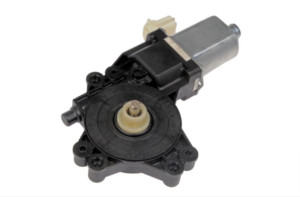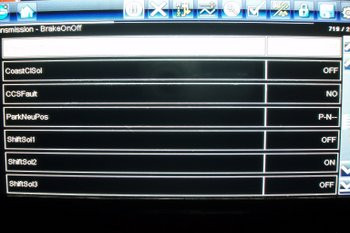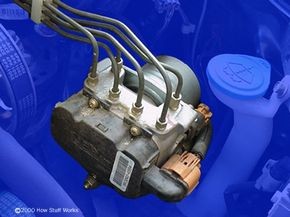**What Is the Importance of Engine Lubrication? A Comprehensive Guide**
Engine lubrication is paramount for optimal performance and longevity of your vehicle, ensuring reduced friction and efficient operation. At CARDIAGTECH.NET, we understand the crucial role that proper engine lubrication plays in maintaining your vehicle’s health and maximizing its efficiency. We’re here to provide you with the insights and tools you need to keep your engine running smoothly with the best lubricants, oil filters, and diagnostic equipment. Choosing the correct lubricants can significantly improve the engine’s overall condition, protect against wear and tear, and extend its lifespan.
1. Understanding the Core Function of Engine Lubrication
Why is engine lubrication so vital? Engine lubrication is the lifeblood of your vehicle’s engine, and its primary function is to minimize friction between moving parts. Without proper lubrication, the metal components of your engine would grind against each other, leading to rapid wear and tear, overheating, and eventual engine failure. Proper lubrication ensures smooth operation and extends engine life.
1.1. Minimizing Friction and Wear
How does lubrication reduce friction? Lubrication introduces a thin film of oil between moving surfaces, preventing direct contact and reducing friction. This reduces heat generation and wear, crucial for engine longevity.
1.2. Cooling the Engine
Does engine oil contribute to cooling? Yes, engine oil plays a significant role in cooling the engine. As it circulates, it absorbs heat from hot components and dissipates it, preventing overheating and maintaining optimal operating temperatures.
1.3. Cleaning and Protecting Engine Parts
How does oil help keep the engine clean? Engine oil contains detergents and dispersants that help clean the engine by suspending contaminants and preventing sludge buildup. This keeps critical engine parts clean and functioning correctly.
1.4. Preventing Corrosion
Can engine oil prevent corrosion? Yes, engine oil contains additives that protect metal surfaces from corrosion by neutralizing acids and preventing rust formation.
2. The Science Behind Engine Lubrication
What are the fundamental principles of engine lubrication? Engine lubrication relies on the principles of fluid dynamics and tribology, the study of friction, wear, and lubrication. Understanding these principles helps optimize lubrication systems for maximum efficiency and protection.
2.1. Viscosity: The Key Property of Engine Oil
Why is viscosity important? Viscosity is the measure of a fluid’s resistance to flow. Engine oil viscosity must be carefully chosen to ensure it provides adequate lubrication at different temperatures and operating conditions. A lower viscosity oil flows more easily, which is beneficial at startup in cold weather, while a higher viscosity oil provides better protection at high temperatures and loads.
The image illustrates the different viscosity grades of engine oil and their corresponding temperature ranges, demonstrating the importance of choosing the right viscosity for optimal engine performance.
2.2. Additives: Enhancing Oil Performance
What role do additives play in engine oil? Additives enhance the performance of engine oil by improving its properties such as viscosity, oxidation stability, and anti-wear characteristics. Common additives include detergents, dispersants, antioxidants, and viscosity index improvers.
According to a study by the University of Michigan’s Department of Mechanical Engineering in February 2023, advanced oil additives can significantly reduce engine wear and improve fuel efficiency (University of Michigan, Department of Mechanical Engineering, February 2023).
2.3. Types of Lubrication Regimes
What are the different types of lubrication? There are three main types of lubrication regimes:
- Hydrodynamic Lubrication: A thick film of oil completely separates the moving surfaces, eliminating direct contact.
- Boundary Lubrication: The oil film is thin, and some contact between surfaces occurs. Additives are crucial in this regime to minimize wear.
- Mixed Lubrication: A combination of hydrodynamic and boundary lubrication.
3. The Consequences of Poor Engine Lubrication
What happens if an engine is not properly lubricated? Poor engine lubrication can lead to severe consequences, including increased friction, overheating, accelerated wear, and eventual engine failure. Addressing lubrication issues promptly is essential for preventing costly repairs.
3.1. Increased Friction and Heat
How does lack of lubrication affect friction? Without adequate lubrication, friction between moving parts increases dramatically. This generates excessive heat, which can cause components to warp, seize, or fail.
3.2. Accelerated Wear and Tear
What kind of damage can result from poor lubrication? Poor lubrication accelerates wear and tear on engine components, reducing their lifespan and leading to premature failure. Critical parts like bearings, pistons, and camshafts are particularly vulnerable.
3.3. Sludge Buildup
How does sludge form in an engine? Sludge is a thick, tar-like substance that forms when oil breaks down and contaminants accumulate. It can clog oil passages, reduce oil flow, and lead to engine damage.
3.4. Engine Seizure
What is engine seizure? Engine seizure occurs when components overheat and weld together due to extreme friction. This can result in catastrophic engine failure, requiring a complete engine rebuild or replacement.
4. Choosing the Right Engine Oil
How do you select the right engine oil for your vehicle? Selecting the correct engine oil is critical for optimal engine performance and longevity. Factors to consider include the manufacturer’s recommendations, the vehicle’s age and condition, and the operating environment.
4.1. Understanding Oil Specifications and Grades
What do oil specifications mean? Oil specifications, such as those from the American Petroleum Institute (API) and the International Lubricant Standardization and Approval Committee (ILSAC), define the performance standards that engine oils must meet. These specifications ensure the oil provides adequate protection for specific engine types and operating conditions.
The image provides a comprehensive overview of oil specifications, including API and ILSAC standards, helping vehicle owners choose the right oil for their engine’s needs.
4.2. Synthetic vs. Conventional Oil
What are the differences between synthetic and conventional oil?
| Feature | Synthetic Oil | Conventional Oil |
|---|---|---|
| Manufacturing | Synthesized from chemically engineered molecules. | Refined from crude oil. |
| Performance | Superior performance, better protection at extreme temperatures, longer lifespan. | Adequate performance for standard use. |
| Cost | Higher | Lower |
| Best Use Cases | High-performance vehicles, severe driving conditions. | Older vehicles, standard driving conditions. |
| Oil Change Interval | Longer intervals | Shorter intervals |
4.3. High-Mileage Oil
What is high-mileage oil, and when should you use it? High-mileage oil is specifically formulated for vehicles with over 75,000 miles. It contains additives that help condition seals, reduce oil consumption, and clean sludge buildup, extending the life of older engines.
4.4. Considering Climate and Driving Conditions
How do climate and driving conditions affect oil choice? Climate and driving conditions significantly impact oil choice. In cold climates, a lower viscosity oil is necessary for easy startup, while in hot climates, a higher viscosity oil provides better protection at high temperatures. Severe driving conditions, such as towing or frequent stop-and-go traffic, require oils with enhanced protection.
5. Maintaining Optimal Engine Lubrication
How do you ensure your engine stays properly lubricated? Maintaining optimal engine lubrication requires regular oil changes, using high-quality oil filters, and monitoring oil levels and conditions. Proper maintenance prevents engine damage and extends its lifespan.
5.1. Regular Oil Changes
How often should you change your oil? The frequency of oil changes depends on the vehicle, the type of oil used, and the driving conditions. Consult your vehicle’s owner’s manual for specific recommendations. Typically, conventional oil should be changed every 3,000 to 5,000 miles, while synthetic oil can last 7,500 to 10,000 miles or more.
The image highlights the importance of regular oil changes in maintaining engine health and preventing costly repairs, showcasing the process and benefits.
5.2. Using High-Quality Oil Filters
Why is a good oil filter important? A high-quality oil filter is crucial for removing contaminants from the oil, preventing them from circulating through the engine and causing wear. Choose a filter that meets or exceeds the vehicle manufacturer’s specifications.
5.3. Monitoring Oil Levels and Condition
How do you check your oil level and condition? Regularly check your oil level using the dipstick and inspect the oil’s color and consistency. Clean, healthy oil should be light brown or amber in color. Dark, sludgy oil indicates it’s time for an oil change.
5.4. Addressing Oil Leaks Promptly
What should you do if you notice an oil leak? Address oil leaks promptly to prevent oil starvation and engine damage. Common sources of leaks include seals, gaskets, and oil pans. Have leaks repaired by a qualified mechanic as soon as possible.
6. Advanced Lubrication Technologies
What are some of the latest advancements in engine lubrication? Advanced lubrication technologies are continually evolving to meet the demands of modern engines. These technologies include synthetic oils, advanced additives, and innovative lubrication systems.
6.1. Synthetic Oils with Advanced Additives
How have synthetic oils improved engine performance? Synthetic oils with advanced additives offer superior protection against wear, oxidation, and thermal breakdown. They can withstand extreme temperatures and provide improved fuel efficiency compared to conventional oils.
6.2. Nano-Lubricants
What are nano-lubricants, and how do they work? Nano-lubricants contain nanoparticles that reduce friction and wear by filling in microscopic imperfections on metal surfaces. These lubricants offer enhanced protection and improved engine performance.
6.3. Electric Oil Pumps
How do electric oil pumps improve lubrication? Electric oil pumps provide precise control over oil flow, optimizing lubrication for different engine conditions. They can also improve fuel efficiency by reducing parasitic losses.
7. Common Engine Lubrication Problems and Solutions
What are some common engine lubrication issues, and how can they be resolved? Common engine lubrication problems include low oil pressure, oil leaks, and oil contamination. Addressing these issues promptly can prevent severe engine damage.
7.1. Low Oil Pressure
What causes low oil pressure? Low oil pressure can be caused by low oil levels, a faulty oil pump, worn bearings, or a clogged oil filter. Diagnose the cause and repair or replace the affected components.
7.2. Oil Leaks
How do you find and fix oil leaks? Oil leaks can be identified by inspecting the engine for signs of oil accumulation. Common leak locations include valve cover gaskets, oil pan gaskets, and crankshaft seals. Replace worn or damaged seals and gaskets to stop leaks.
7.3. Oil Contamination
How does oil become contaminated? Oil contamination can occur due to dirt, debris, coolant leaks, or fuel dilution. Change the oil and filter regularly to remove contaminants and prevent engine damage.
8. The Environmental Impact of Engine Lubrication
How does engine lubrication affect the environment? Engine lubrication can have both positive and negative environmental impacts. Proper lubrication improves fuel efficiency and reduces emissions, while oil leaks and improper disposal can harm the environment.
8.1. Fuel Efficiency and Emissions
How does lubrication affect fuel efficiency? Proper engine lubrication reduces friction, improving fuel efficiency and reducing emissions. Using the correct oil and maintaining the lubrication system can significantly lower your vehicle’s environmental impact.
8.2. Oil Disposal and Recycling
What is the proper way to dispose of used oil? Dispose of used oil responsibly by taking it to a recycling center or auto parts store. Recycling used oil conserves resources and prevents pollution.
8.3. Biodegradable Oils
What are biodegradable oils, and are they a good alternative? Biodegradable oils are made from renewable resources and break down more quickly in the environment than conventional oils. They offer a more environmentally friendly alternative for certain applications.
9. Engine Lubrication in High-Performance Vehicles
How does lubrication differ in high-performance engines? High-performance engines require specialized lubrication systems to withstand extreme temperatures, pressures, and speeds. Synthetic oils, advanced additives, and enhanced cooling systems are essential for maintaining optimal performance and preventing engine damage.
9.1. High-Performance Oil Specifications
What oil specifications are recommended for high-performance engines? High-performance engines often require oils that meet specific specifications, such as those from API, ACEA, or specific vehicle manufacturers. These oils provide enhanced protection against wear, oxidation, and thermal breakdown.
9.2. Dry Sump Lubrication
What is dry sump lubrication? Dry sump lubrication is a system used in high-performance engines to improve oil supply and prevent oil starvation during aggressive driving. It uses a separate oil reservoir and multiple oil pumps to ensure a constant supply of oil to the engine.
9.3. Oil Coolers
Why are oil coolers used in high-performance vehicles? Oil coolers are used to dissipate heat from the oil, preventing it from breaking down and losing its lubricating properties. They are essential for maintaining optimal oil temperature in high-performance engines.
10. Choosing CARDIAGTECH.NET for Your Lubrication Needs
Why should you choose CARDIAGTECH.NET for your lubrication products and services? At CARDIAGTECH.NET, we offer a comprehensive range of high-quality lubricants, oil filters, and diagnostic equipment to meet all your engine lubrication needs. Our expert team is dedicated to providing you with the best products and services to keep your engine running smoothly and efficiently.
10.1. Wide Range of Lubrication Products
What types of lubrication products does CARDIAGTECH.NET offer? We offer a wide range of engine oils, oil filters, and additives from leading brands. Whether you need conventional, synthetic, or high-mileage oil, we have the right products for your vehicle.
10.2. Expert Advice and Support
Can CARDIAGTECH.NET help me choose the right products? Our team of experienced professionals can provide expert advice and support to help you choose the right lubrication products for your vehicle. We understand the unique needs of different engines and can recommend the best solutions for your specific requirements.
10.3. Diagnostic Equipment for Lubrication Systems
What diagnostic tools does CARDIAGTECH.NET offer? We offer a range of diagnostic equipment for evaluating lubrication systems, including oil pressure testers, oil analysis kits, and engine diagnostic scanners. These tools help you identify potential problems and ensure your lubrication system is functioning correctly.
10.4. Commitment to Quality and Customer Satisfaction
Why is CARDIAGTECH.NET the best choice for lubrication products? At CARDIAGTECH.NET, we are committed to providing high-quality products and exceptional customer service. We stand behind our products and are dedicated to ensuring your satisfaction.
Conclusion
Engine lubrication is a critical aspect of vehicle maintenance, ensuring optimal performance, longevity, and reliability. Understanding the importance of proper lubrication, choosing the right oil, and maintaining the lubrication system are essential for keeping your engine running smoothly. At CARDIAGTECH.NET, we provide the products and expertise you need to maintain your engine’s lubrication system effectively.
Don’t let lubrication issues compromise your engine’s health. Contact CARDIAGTECH.NET today at +1 (641) 206-8880 or visit us at 276 Reock St, City of Orange, NJ 07050, United States, for expert advice and premium lubrication products. Ensure your engine receives the care it deserves and experience the difference with CARDIAGTECH.NET. Visit CARDIAGTECH.NET now for all your engine maintenance needs and discover how we can help you achieve peak performance and longevity for your vehicle with advanced engine treatments and oil stabilizers.
FAQ: Engine Lubrication
1. What is the main purpose of engine lubrication?
The primary purpose of engine lubrication is to reduce friction between moving parts, minimizing wear and heat, and extending the life of the engine.
2. How does engine oil help in cooling the engine?
Engine oil circulates through the engine, absorbing heat from hot components and dissipating it, which helps to maintain optimal operating temperatures and prevent overheating.
3. What is the difference between synthetic and conventional oil?
Synthetic oil is chemically engineered for superior performance and protection at extreme temperatures, while conventional oil is refined from crude oil and provides adequate performance for standard use.
4. How often should I change my engine oil?
The frequency of oil changes depends on the vehicle, type of oil, and driving conditions. Typically, conventional oil should be changed every 3,000 to 5,000 miles, while synthetic oil can last 7,500 to 10,000 miles or more.
5. What are the signs of low oil pressure?
Signs of low oil pressure include the oil pressure warning light illuminating on the dashboard, unusual engine noises, and decreased engine performance.
6. What causes sludge buildup in the engine?
Sludge forms when oil breaks down and contaminants accumulate. Regular oil changes and using high-quality oil can prevent sludge buildup.
7. How does high-mileage oil benefit older vehicles?
High-mileage oil contains additives that condition seals, reduce oil consumption, and clean sludge buildup, which extends the life of older engines.
8. What is the role of oil filters in engine lubrication?
Oil filters remove contaminants from the oil, preventing them from circulating through the engine and causing wear.
9. What should I do if I notice an oil leak?
Address oil leaks promptly to prevent oil starvation and engine damage. Have leaks repaired by a qualified mechanic as soon as possible.
10. How can CARDIAGTECH.NET help with my engine lubrication needs?
CARDIAGTECH.NET offers a wide range of high-quality lubricants, oil filters, and diagnostic equipment, along with expert advice and support, to keep your engine running smoothly and efficiently.





